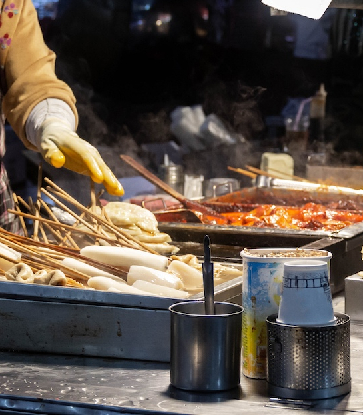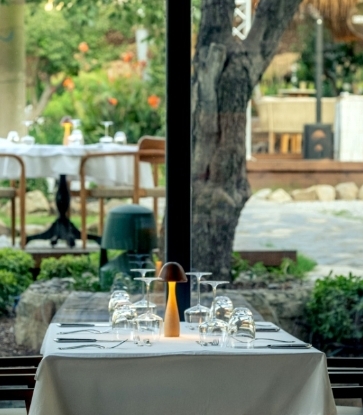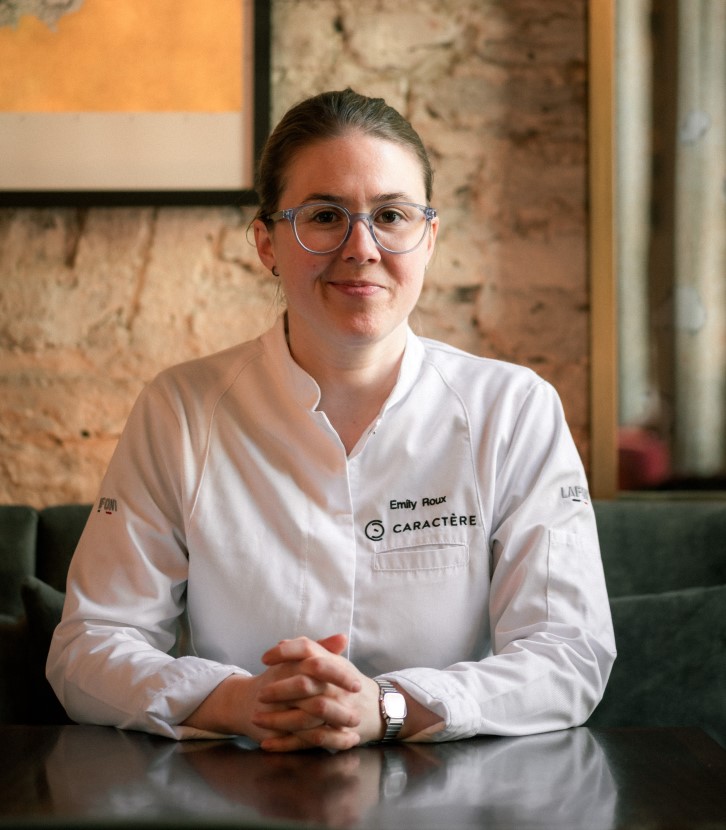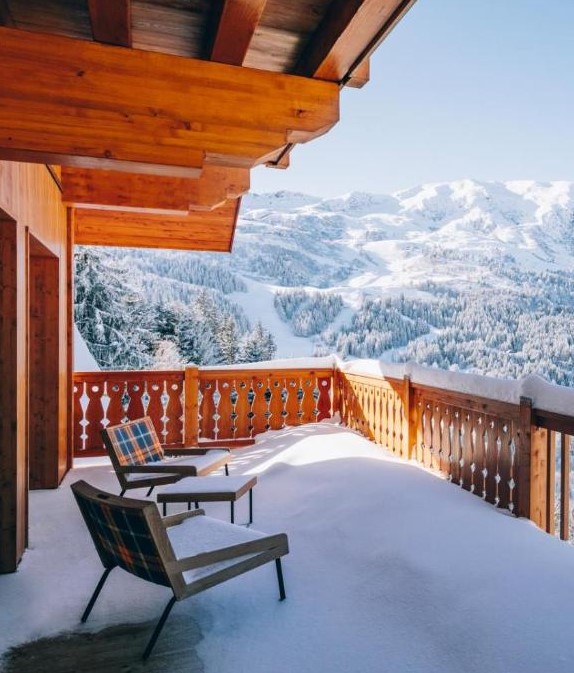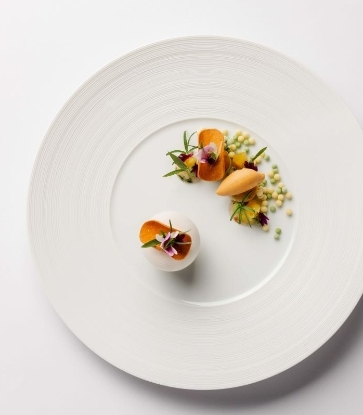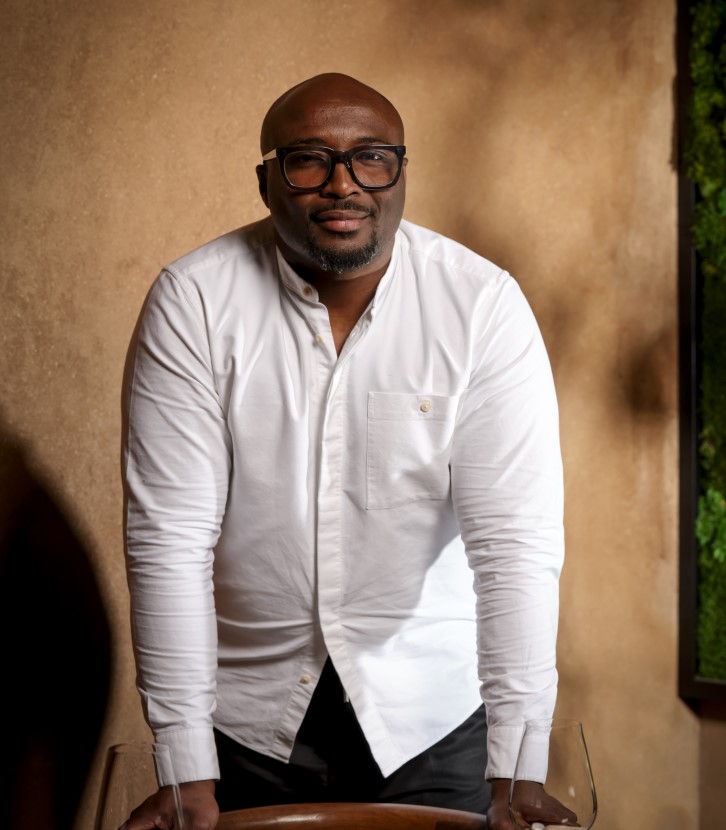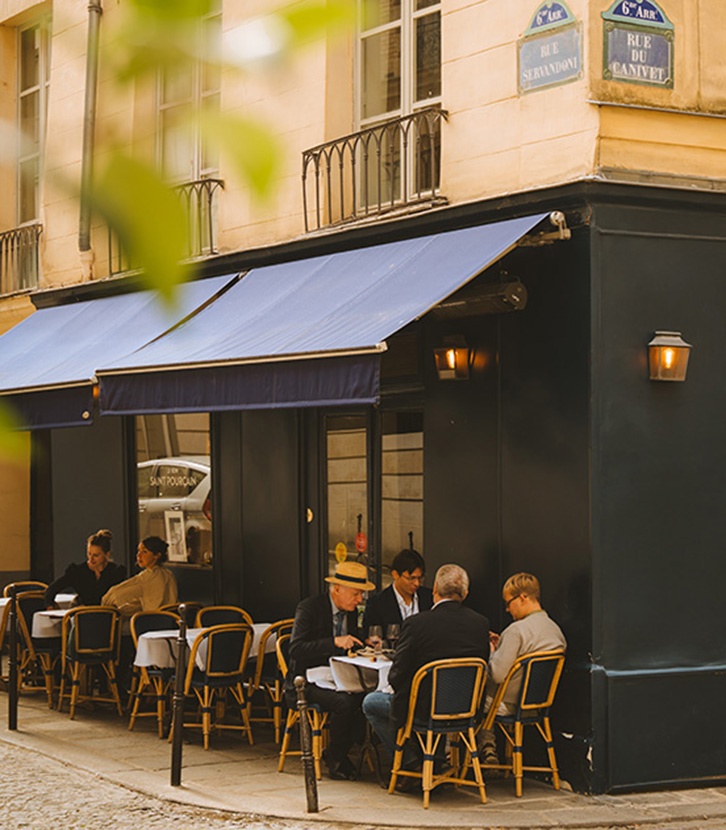Arcanely tucked into the historic, bohemian streets of Greenwich Village, you will find a place that is the ultimate crossroads of art; spanning culinary to visual to martial.
Chef Franco Sampogna, a seasoned black belt in Brazilian Jiu Jitsu, and his business partner, Bernardo Silva, a purple belt in the same practice, are the operators of Frevo. The One Michelin Star restaurant is a speakeasy chef’s counter enwreathed by sixteen seats. It is veiled by an art gallery and only accessible by stepping through one of the exhibitions' ever-changing pieces of art. The unique concept quickly gained fame upon its opening in 2019 and rose to Michelin ranks shortly thereafter in 2022.
Before you dive into the full story, click here to read our Inspectors' take.
While the number 13 is notoriously associated with misfortune, for Chef Fanco Sampogna, it has become a symbol of victory and triumph. “It took me 13 years to achieve my black belt in Brazilian Jiu Jitsu, and ironically, it was 13 years into my career when I was awarded my first Michelin Star.”
As Frevo has evolved from a creative concept to cultural institution, Sampogna credits his consistent practice in Brazilian Jiu Jitsu to his continuing success as a chef.
On a cloudy February day, Sampogna arrives at Gregor Gracie Jiu Jitsu academy. His crisp, white gi fastened with a stark black belt gleamed in the silver light of the sky. The academy sits in One Brooklyn Bridge Park with an unparalleled view of Manhattan’s southern skyline.
Entering the academy, Sampogna says in his Brazilian tinged accent “Two of the hardest things in my life were achieving this” he says pointing to his black belt, “and my first Michelin Star.”

Brazilian Jiu-Jitsu was first developed in Brazil by the Gracie family in 1925. The self-defense martial art is a hybrid teaching of Kodokan judo and traditional Japanese jujitsu. The practice is a combat sport centered around grappling and opponent submission that is heavily vested in pressure, timing, and human anatomy. Chef Sampogna trains under Gregor Gracie, whose family is credited as the founders of Brazilian Jiu-Jitsu. It was Gracie who also bestowed Sampogna with his black belt, a moment Sampogna calls “extremely special.”
Discipline, technique, and skill are three defining principles that Sampogna attributes to his practice of both culinary arts and jiu jitsu. Citing his hyperactive personality as something that has presented him with hardships through his life, jiu-jitsu and shortly thereafter, cooking, became two steadfast remedies.
“As I began to practice jiu-jitsu, there was a harmony and focus that I learned that I would then take with me into the kitchen,” Sampogna says as his acedemy-mates begin their practice behind him. “The community I built here and the community I built with my kitchen teams were like mirror images… so much in both situations are built on pillars of trust and respect.”

The team at Frevo moves symbiotically, grappling traditional roles of a restaurant into submission. Sommeliers drop dishes with expert explanation and captains present wine with history that speaks like a storybook. All the while, the kitchen, which operates directly in the face of each guest, moves like surgeons to dole out ten courses of meticulously plated dishes. It is in these moments where you will witness the focused harmony that Chef Sampogna speaks of.
To date, Chef Sampogna is part of a very small circle of Michelin-Starred chefs with a black belt in the practice of Brazilian Jiu-Jitsu. He is joined by Chef Alex Atala of São Paulo’s Two Michelin Star D.O.M. and Felipe Bronze of Rio de Janeiro’s Two Michelin Star Oro.
“I’m in great company,” Sampogna says with a smirk.

Frevo is constantly evolving. The art gallery, which serves as the restaurant’s lobby, changes each yearly quarter, bringing with it new seasonal items on the tasting menu. As for design, the restaurant underwent a full renovation in 2023, adopting a more seductive vibe that intertwines a brooding mood with artistic energy.
“When it comes to what we’re doing here, there is no ceiling,” Sampogna says from behind the kitchen counter, his team buzzing around him preparing for their first of two nightly seatings. “It’s a constant practice of improvement, honing our skills, and increasing our strength individually and as a team. It’s in that practice that we find our wins.”

Hero image: Courtesy of Salvatore DiBenedetto



